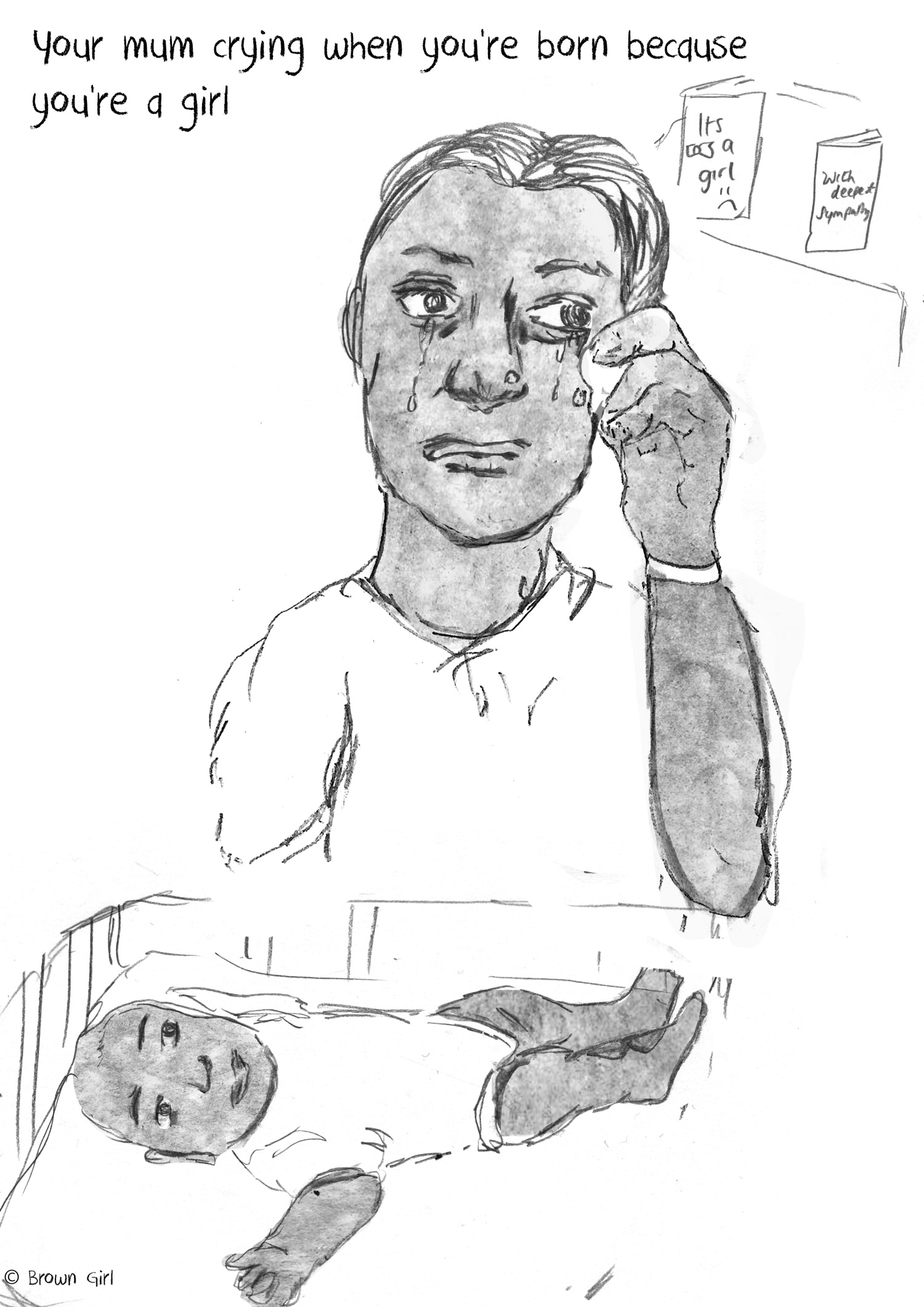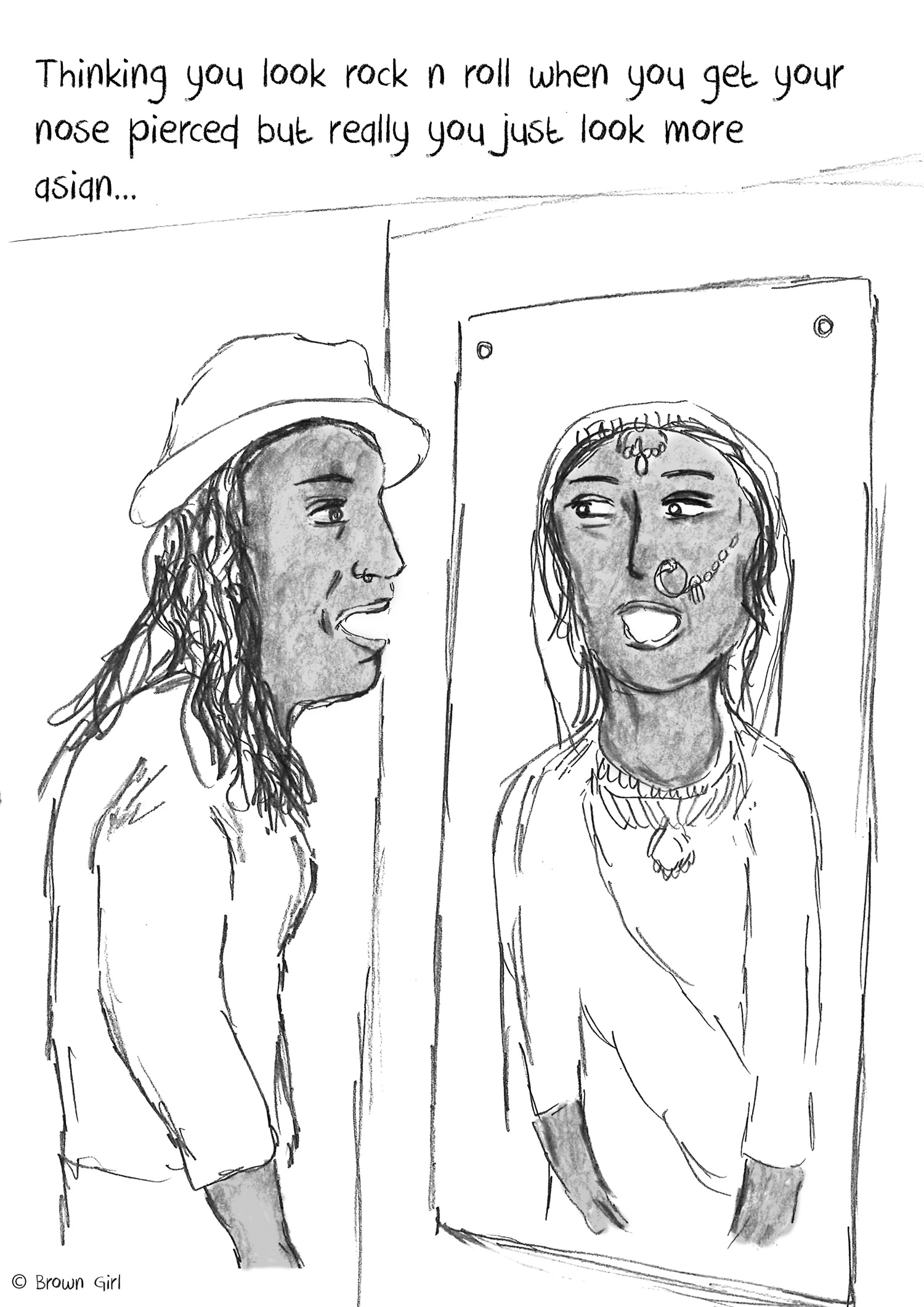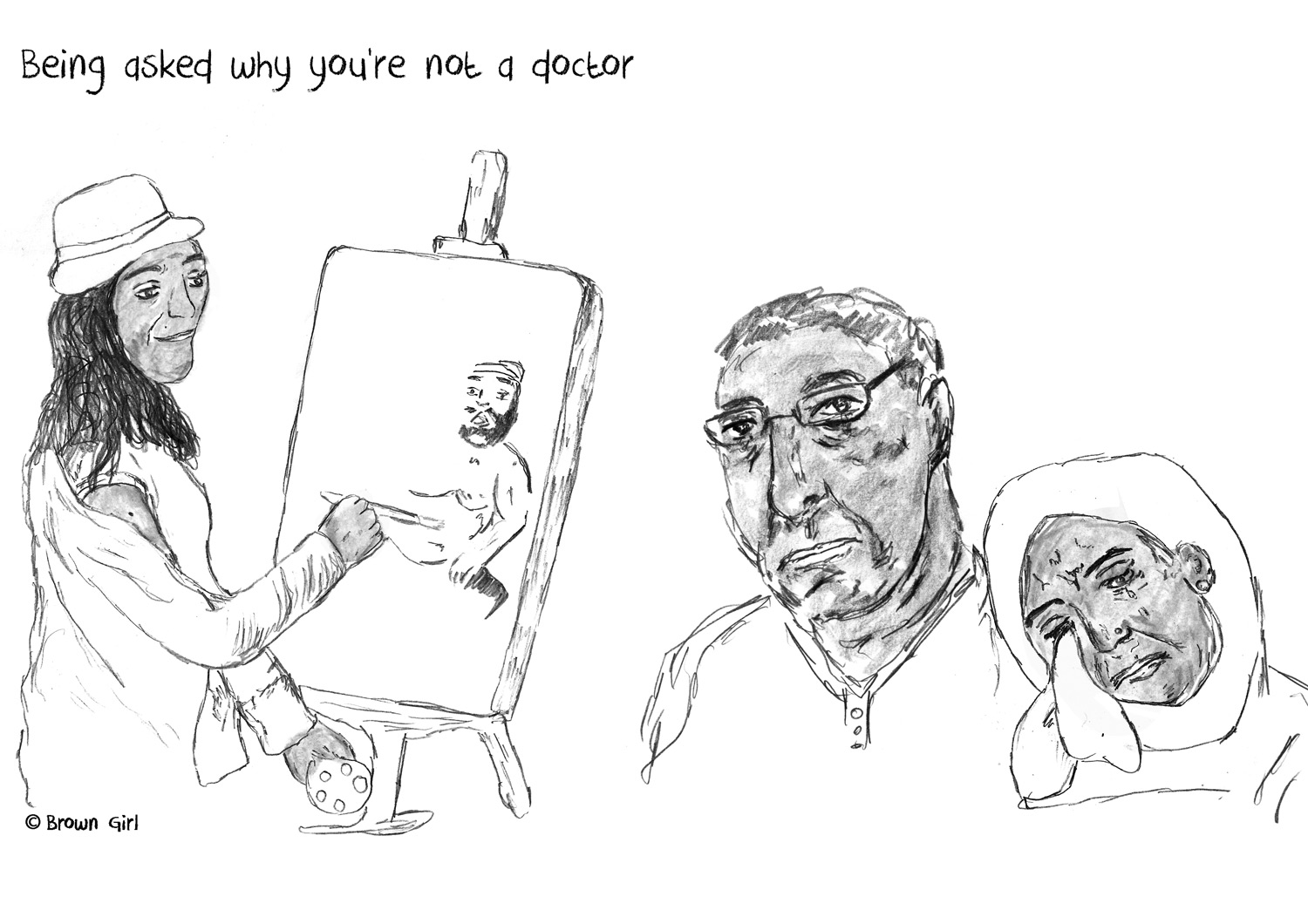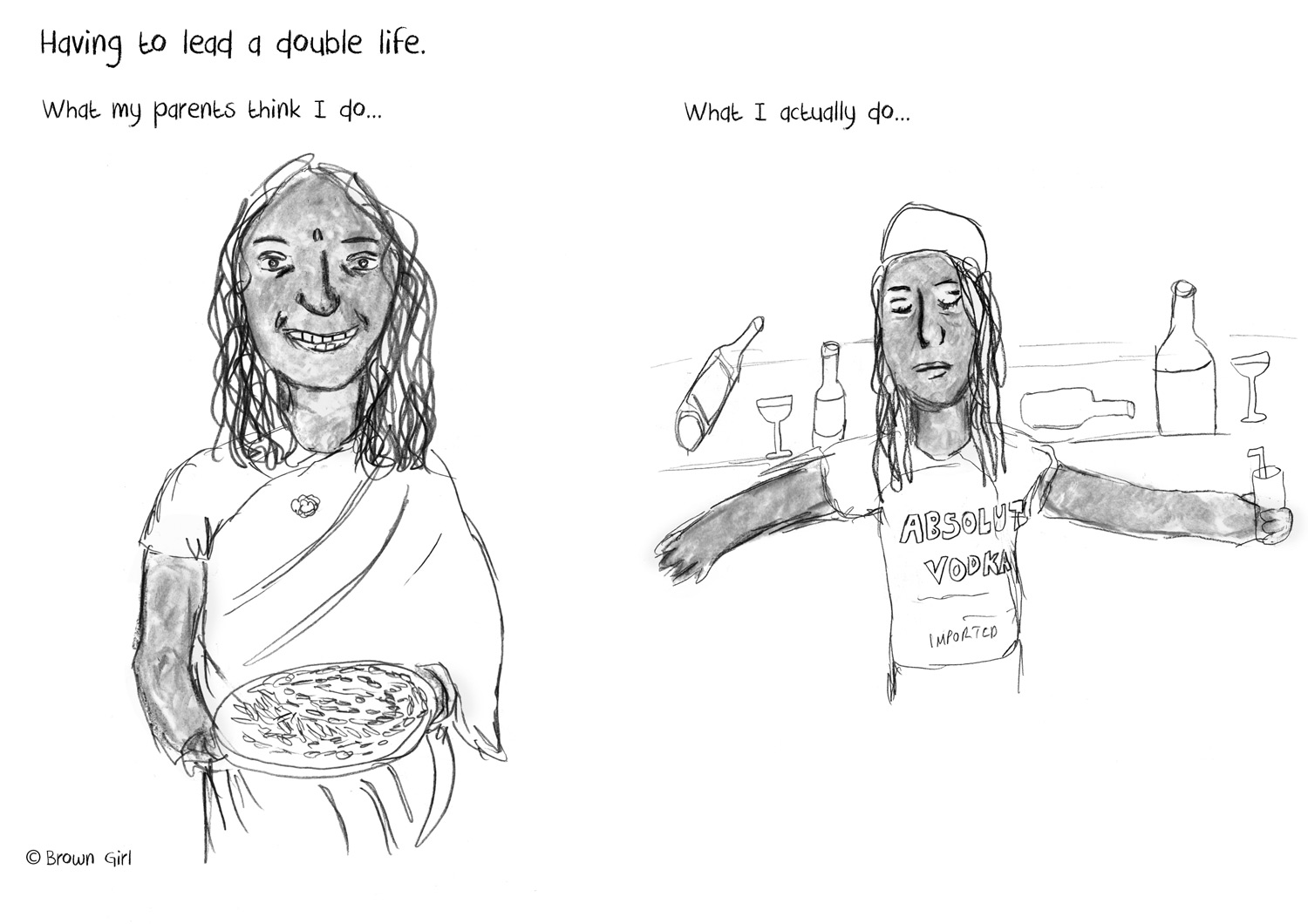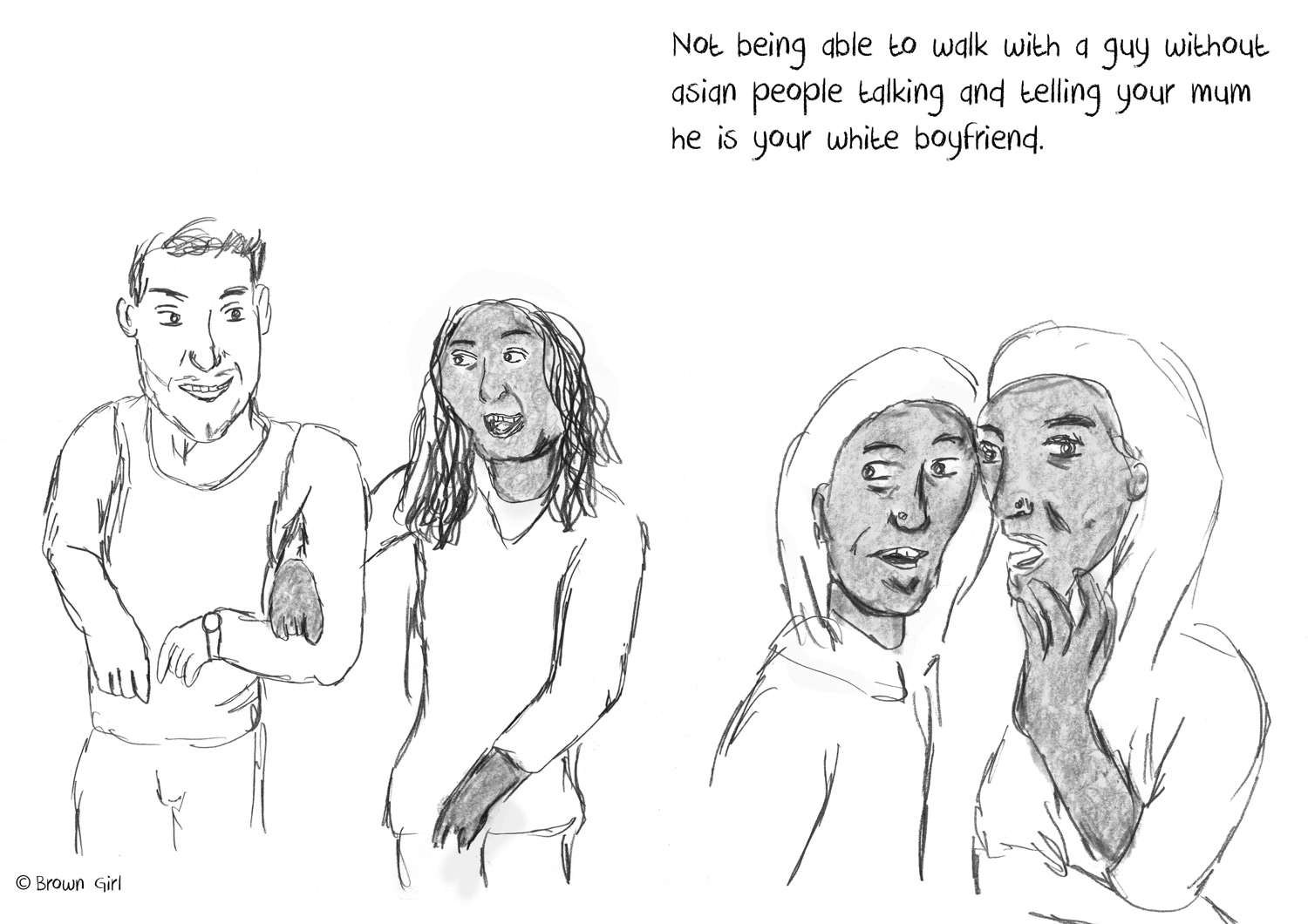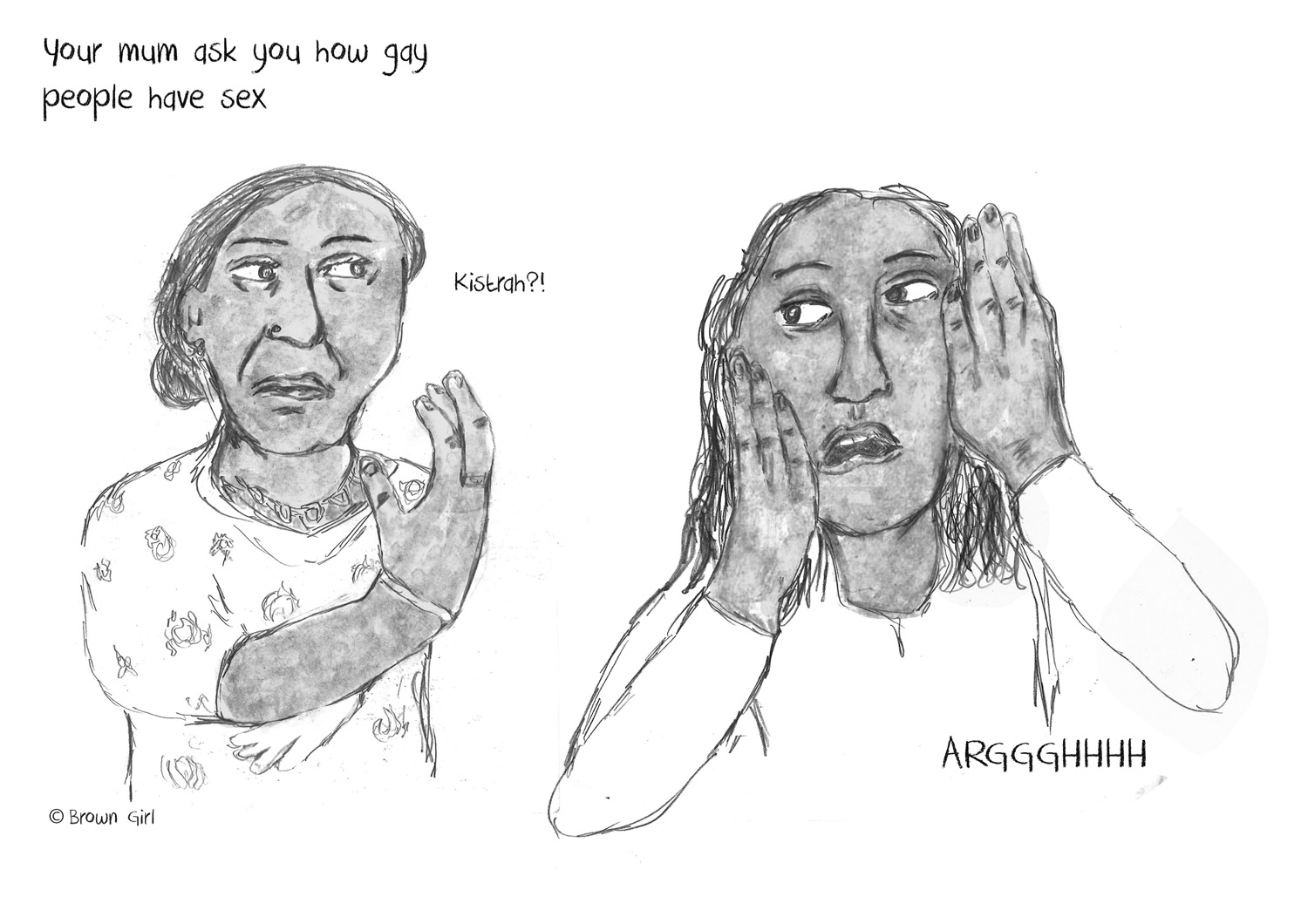There are moments when someone relates an anecdote from their younger years and it feels as if they had a window into your childhood! The embarrassment or discomfort of that moment comes flooding back, capturing a memory that could have been from many years ago. Edinburgh-based artist Safeena Razzaq captures exactly those emotions except instead of words she expresses such toe-curling, hilarious, and often infuriating moments through illustrations. Growing up as a Muslim girl in Britain, she knows exactly what it’s like to be the only brown girl in the village. She’s fielded all the ridiculous questions about faith and tradition you can imagine. ‘Do Muslim women take their hijab off when they go to sleep?’ ‘You really fast for thirty days – how can you still be alive?’ She brings to life the tactless and prurient questions of nosey relatives who seem to live their lives delighting in gossip and scandal-mongering about extended (usually female) family members: ‘Aunty Anjum told me she saw you talking to a boy at the bus stop this morning’. And heaven help a Muslim brown girl if she smiles while texting in full view of her parents: ‘who are you texting? A boy? No? What’s so funny then? You better not be doing any of that sexting mexting!’
Although she specialises in printmaking, it is Razzaq’s illustrations that fulfil her desire to create art that tackles social and political issues. Creating awareness through wry humour has proven a disarming and subtle way to confront difficult or awkward situations. The inspiration for her work comes from personal experiences and incidents that many Muslim women will undoubtedly relate to. She uses her sketches to reflect on and contemplate aspects of her own journey, navigating cultural confusion and her struggle to locate her identity and feel empowered both as an individual and as a brown Muslim woman within our patriarchal global construct. Her imagery draws on sensitive and controversial aspects of Muslim family life in the UK although she could be a woman in any context who seeks to subvert the generational norms that seemingly confine her. Her ‘Brown Girl Problems’ series will resonate with many second and third generation women whose origins lie in the Indian subcontinent. But, as well as making us laugh, we can all relate to the message in her illustrations: the universal quest to look within ourselves and find the light of our own being.
